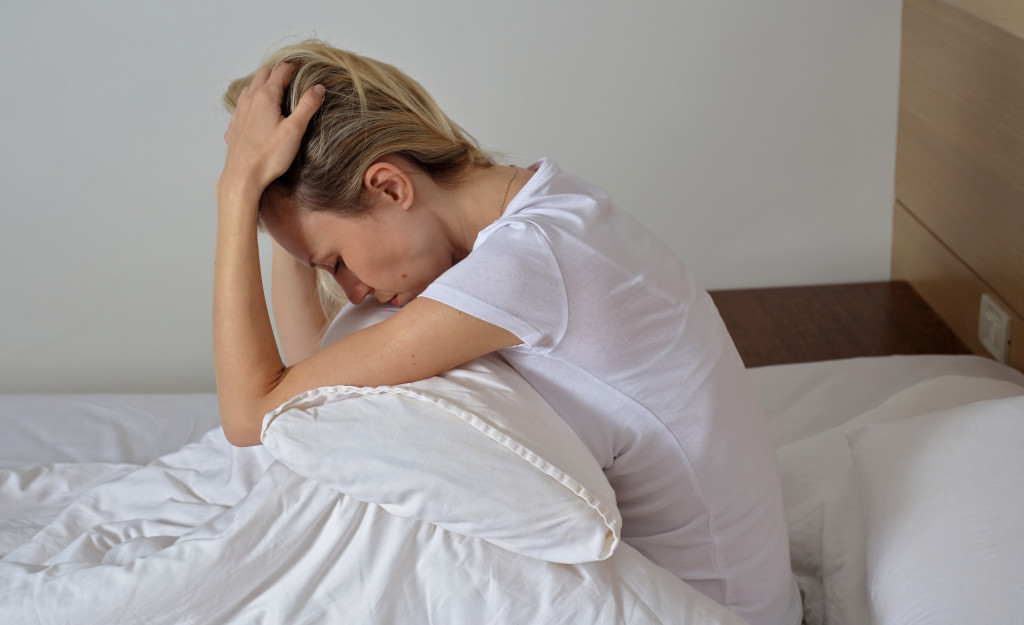Are you having trouble sleeping at night? If you do sleep, do you wake up an hour or two after? When you wake up, do you feel sleepy, fuzzy, and light-headed? Have you ever gone to the doctor about your sleeping problems? Chances are that you have insomnia, which is common when the world has turned upside down as it has during the past year. We will not be surprised if more people are suffering from insomnia and depression than ever before. Worldwide statistics showed that suicide rates, for example, are on a rise because of the pandemic. Other mental health problems such as insomnia are surely on the rise, too.
While there are drugs that can help you sleep better, you should first focus on the alternative treatments for insomnia that do not include you popping pills in your mouth before bedtime. Sleeping pills are not over-the-counter drugs. Pharmacies will only issue them to those who have a prescription from a professional medical expert. When taken without the advice of doctors, these pills can be detrimental to your health. Although they passed rigid testing and drug substance solubility tests to make sure that they are effective with the right dose, you shouldn’t grow reliant on sleeping pills for your nighttime rest.
Medications to Treat Insomnia
Are you familiar with the drugs doctors use to treat insomnia? Even if you are not depressed, you will need antidepressants such as trazodone for sleeplessness and anxiety. Benzodiazepines and other older sleeping pills are effective for those who are suffering from sleep problems such as night terrors and sleepwalking. However, they can cause addiction, so doctors don’t like prescribing these unless absolutely necessary.
Other drugs such as Doxepine, Eszopiclone, Lemborexant, Ramelteon, and Suvorexant are powerful sleeping aids for those who have trouble sleeping and staying asleep. These are only prescribed for people who have terrible sleeping problems. Over-the-counter sleeping aids such as those categorized as antihistamines are good enough for those who have a bit of a problem falling asleep. But as with all the other prescription and non-prescription drugs, taking too much of these medicines can have an adverse impact on your health.

Alternative Treatments for Insomnia
The alternative treatments for insomnia vary from herbal supplements to yoga to guided imagery to hypnosis. For herbal medicine, the most popular are valerian root, chamomile, and other herbs such as passionflower, lemon balm, and hops. The valerian root is said to be great at making one sleepy and maintaining sleep. Although there is no medical conclusion yet to its effectiveness in treating insomnia, many people are swearing by its positive results.
They said that ancient Chinese use chamomile to sleep better. This comes in different variations—from herbal pills to medicinal tea. Chamomile has no known side effects, so it’s safe even for pregnant women. Don’t take it, though, if you are sensitive to daisies, sunflowers, chrysanthemums, and ragweed.
Acupuncture is another ancient Chinese methodology to treat insomnia. The procedure involved inserting very thin needles into the skin. These needles are inserted at specific acupuncture points to treat whatever is physically ailing the person. It supposedly works very well for insomniacs, though it is not a known long-term cure for sleep problems.
How about essential oils? Many are fans of using essential oils to put babies to sleep. There’s supposedly a specific blend to put kids to sleep. Maybe it could be effective for you, too, if you are having trouble sleeping. There are many brands of essential oils in the market, so pick one that produces pure oils. Those are worth your money.
Another alternative treatment to insomnia is relaxation or meditation. Anxiety and worries are often the causes why people cannot fall asleep. Therefore, the solution is to put the mind at rest. Mindfulness exercises and meditation will work best for people who overthink before bedtime. When their bodies are rested, they can fall asleep better. Such is the magic of meditation. Yoga works well to put one’s mind and body in a relaxed mode.
It is always best to talk to a professional when your sleeping problems are already interfering with your life. If you find yourself drowsy in the morning and during work, it might be time to seek professional help for your problems. While at best, you might just be a little stressed because of everything that’s been happening around you, it can still be a long-term problem that needs a solution right now. Talking to someone about it is the best route out of this predicament.

